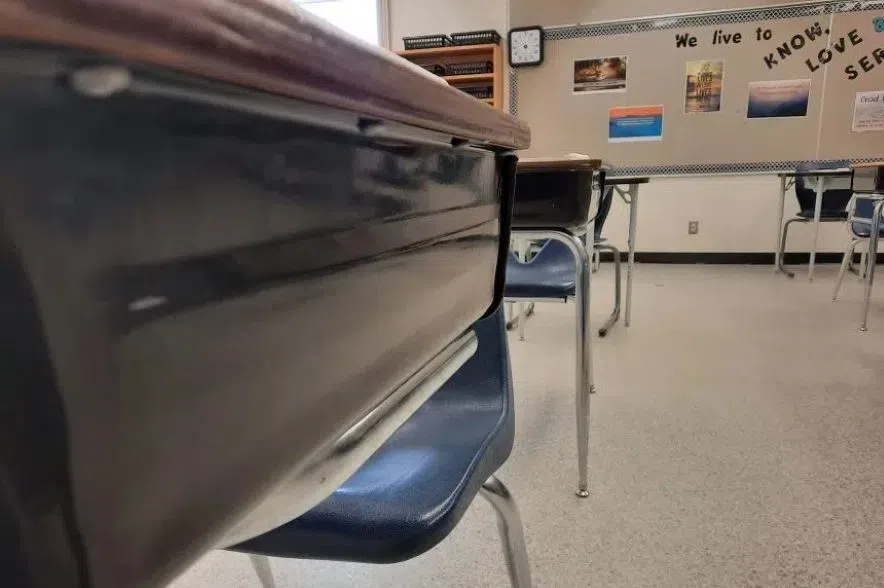As the provincial government and teachers get back to bargaining, the Ministry of Education is touting the funds it has provided to support new innovations in the classroom.
The ministry is set to resume bargaining with the Saskatchewan Teachers’ Federation, with two days of talks scheduled for Monday and Tuesday. Contract negotiations have been deadlocked for some time, with teachers pushing for a significant salary hike along with stipulations on class size and complexity – the number of students in each class who require additional support.
While the province has so far refused to include those stipulations in a new collective agreement, the ministry has launched new initiatives aiming to reduce the issues teachers are facing in Saskatchewan classrooms.
One of the pilot initiatives is the Teacher Innovation and Support Fund, which was launched in January to provide funding for innovative ideas brought forward by teachers that aim to improve the experience of both teachers and students.
The Ministry of Education said nine solutions brought forward through the program will receive funding.
“Projects that support better student and teacher experiences in today’s classrooms have been chosen and range from innovative ideas supporting literacy, mental health and wellness, STEM and teacher practice,” the ministry said in a statement.
“Funding for the first nine successful applications will total $410,649.”
Another round of funding will be awarded “in the coming weeks,” the ministry added, with the pilot set to run until the end of the 2024-25 school year.
Jeremy Cockrill, Saskatchewan’s education minister, thanked the teachers and staff members who brought forward their ideas.
“I am excited to see the many great ideas being submitted by teachers seeking to improve the classroom experience,” Cockrill said in a statement.
But while the government is touting the program’s success, Saskatchewan Teachers’ Federation president Samantha Becotte has said small-scale pilot projects won’t go far when it comes to addressing issues being felt across the province.
“What we’re looking for is a long-term commitment beyond pilot projects,” Becotte said in a previous interview with 650 CKOM/980 CJME’s Evan Bray.
As both sides get back to bargaining, teachers will likely see a new salary offer on the table.
Teachers initially asked for an annual raise of two per cent, plus the Consumer Price Index average annual rate for four years. Cockrill said that adds up to a 23.5 per cent increase over those four years.
Previously, the government offered the union a seven per cent pay bump over three years, but last week Premier Scott Moe said teachers would be offered the same salary formula used by provincial MLAs in this week’s round of negotiations.
“We’re going to bring our best to the table on Monday and Tuesday and continue to hope we get a negotiated deal,” Cockrill said.











